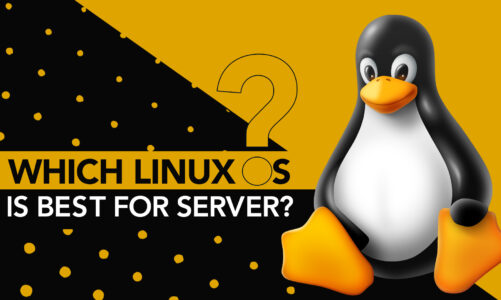Operating systems form the heart of any IT infrastructure. So when it comes to small and medium-sized businesses (SMBs) and managed service providers (MSPs), the need for a reliable, safe, and effective operating system is ultimate.
In this context, Linux has emerged as a top choice. It offers several benefits for SMBs and MSPs, making it a go-to option. But which Linux distribution should you choose? Well, this problem is solved as well as this article delves into the best Linux distributions for SMBs and MSPs. Let’s dive right into it.
1: Debian
Debian is a versatile, free, and open-source operating system renowned for its stability, robust security, vast software repository, and extensive long-term support. Its strong focus on reliability, combined with a dedicated security team and compatibility with various hardware architectures, makes it an ideal choice to put it into use.
With thousands of software packages available for easy installation, Debian caters to a wide range of business needs, enhancing its appeal for SMBs and MSPs.
Pros
- Exceptional stability
- Robust security with a dedicated team
- Scalability across various hardware architectures
- Strong community support
Cons
- Its focus on stability might mean less up-to-date software in the stable version
2: openSUSE
openSUSE is a versatile, community-driven Linux-based operating system backed by SUSE Linux, known for its robustness, adaptability, and comprehensive software offerings. It caters to SMBs and MSPs through its extensive customization options, ease of administration via YaST, and robust security measures.
Furthermore, the active openSUSE community provides added user support, making it an ideal choice for businesses with specific operational requirements and those prioritizing security.
Pros
- Supports a variety of environments, enabling customization to user preferences
- User-friendly, even for those unfamiliar with Linux
- Incorporates enterprise-grade security
- Active Community
Cons
- Software repository might not be as vast as some other popular distributions
3: Arch Linux
Arch Linux, recognized for its simplicity and user-centric design, stands out as a premier Linux distribution for SMBs and MSPs. Its primary strength lies in its flexibility, allowing for detailed customization, meaning that systems can be tailored to meet exact needs without unnecessary extras.
With its rolling release model, it ensures regular, all-encompassing updates, mitigating the need for manual upgrades. Pacman, Arch’s efficient package manager, combined with the extensive Arch User Repository (AUR), offers a wide range of software options.
Pros
- Highly customizable, offering flexibility
- Rolling release model ensures up-to-date software and enhances security
- Efficient package manager and extensive user repository
- Strong community support
- Cost-effective and performance-efficient
Cons
- Potential for instability due to rolling release model
4: CentOS
CentOS, an acronym for Community Enterprise Operating System, is a Linux distribution derived from the source code of Red Hat Enterprise Linux (RHEL). Its inherent stability, security features, and extended support period, alongside being a cost-effective enterprise-ready solution, make it an ideal choice for SMBs and MSPs.
CentOS ensures a high level of reliability and robustness, which is crucial for businesses. At the same time, its strong community provides valuable resources for troubleshooting and learning, especially beneficial for organizations with limited IT resources.
Pros
- High stability and reliability
- Robust security features
- Enterprise-level functionalities
- Strong and active community support
Cons
- Less frequent updates may mean slower access to new features
5: Red Hat Enterprise Linux
Red Hat Enterprise Linux (RHEL) is a robust, open-source operating system developed by Red Hat, designed specifically to meet the needs of enterprise-level applications and systems. Its appeal to SMBs and MSPs lies in its reliable stability, exceptional customer support, robust security protocols, wide software compatibility, easy scalability, and long-term support plans.
RHEL’s ability to handle increased workloads allows for growth and expansion while its support and security systems ensure business continuity.
Pros
- Reliable stability, minimizing system crashes and downtime.
- Comprehensive customer support
- Robust security
- Wide compatibility with enterprise-class applications
Cons
- Some companies might deem RHEL subscriptions too costly.
6: Gentoo
Gentoo is a versatile and customizable Linux distribution favored by many SMBs and MSPs due to its ability to compile software from source code, enabling precise adaptation to specific system needs. Its advanced package management system, Portage, allows intricate control over software configurations, potentially improving performance and conserving resources.
Moreover, Gentoo’s robust community fosters active development and broad documentation, facilitating user understanding and reducing reliance on external support.
Pros
- Highly customizable, as software is compiled from source
- Advanced package management with Portage
- Rich documentation and active community support
- Potential for performance optimization and resource conservation
Cons
- Requires deep understanding of Linux systems
Conclusion
Choosing the right Linux distribution for your SMB or MSP is a crucial decision. The right choice can lead to increased efficiency, security, and savings. The top Linux distributions include Debian, OpenSUSE, Arch Linux, CentOS, RHEL, and Gentoo. Each of these offers unique strengths, catering to different business needs and operational requirements.



